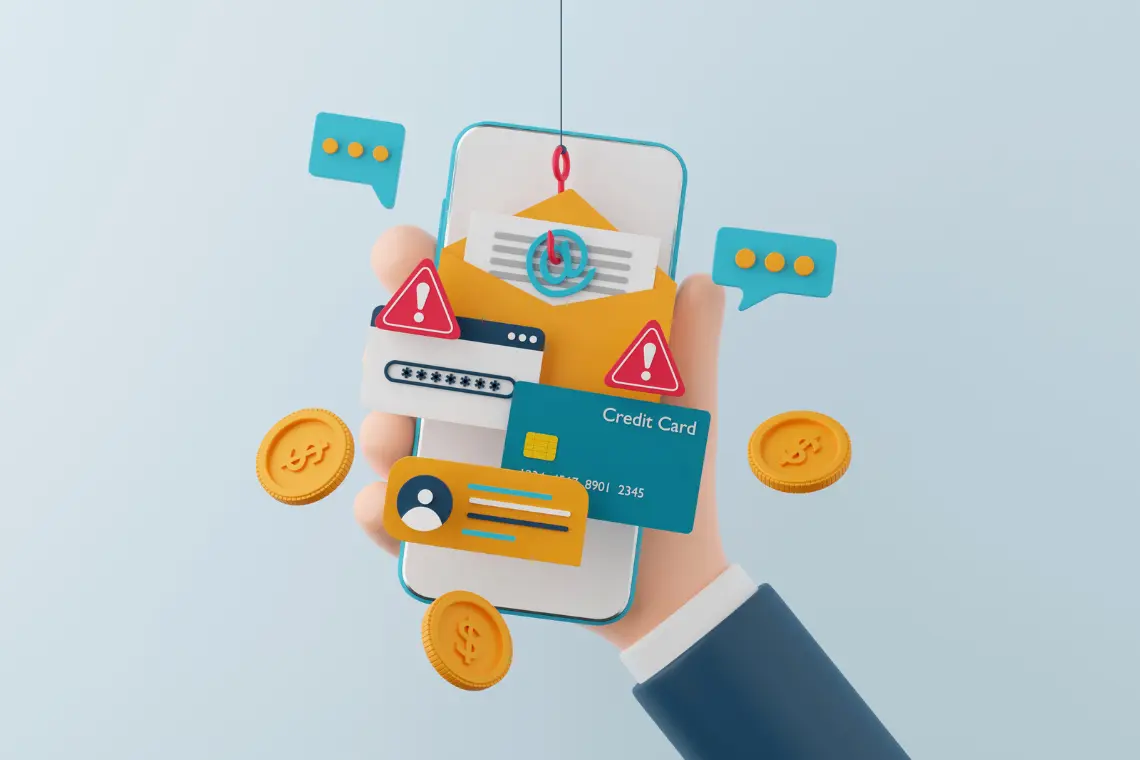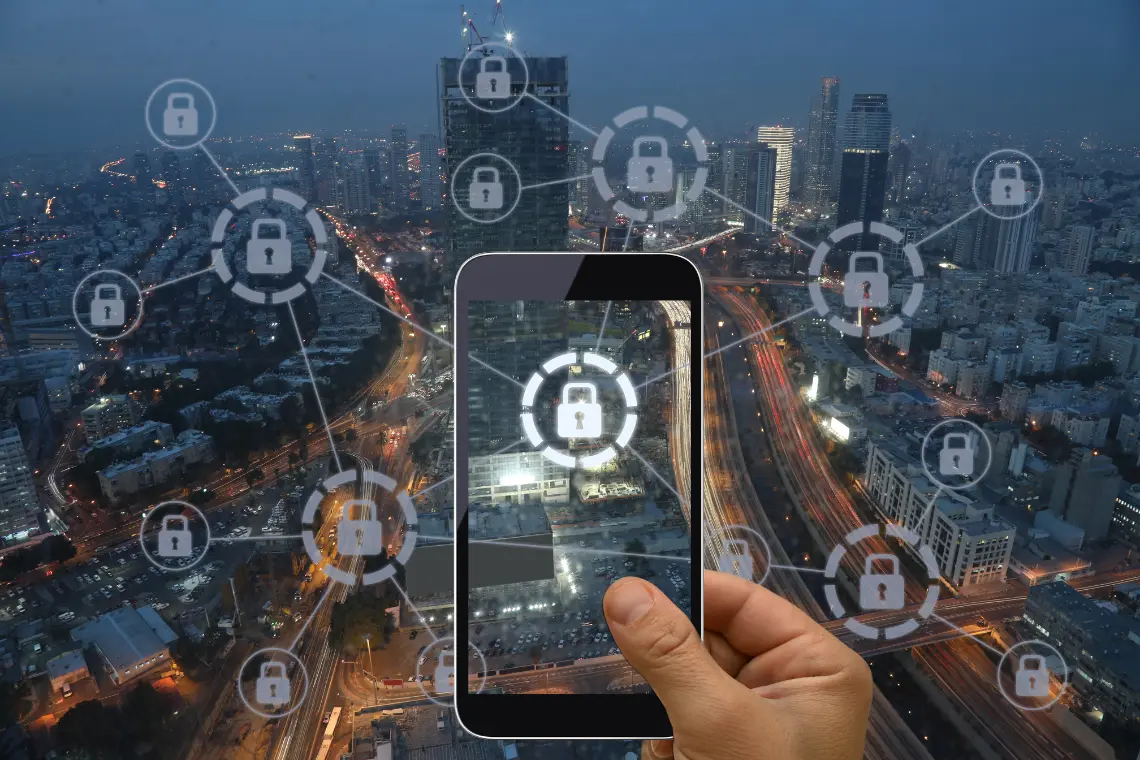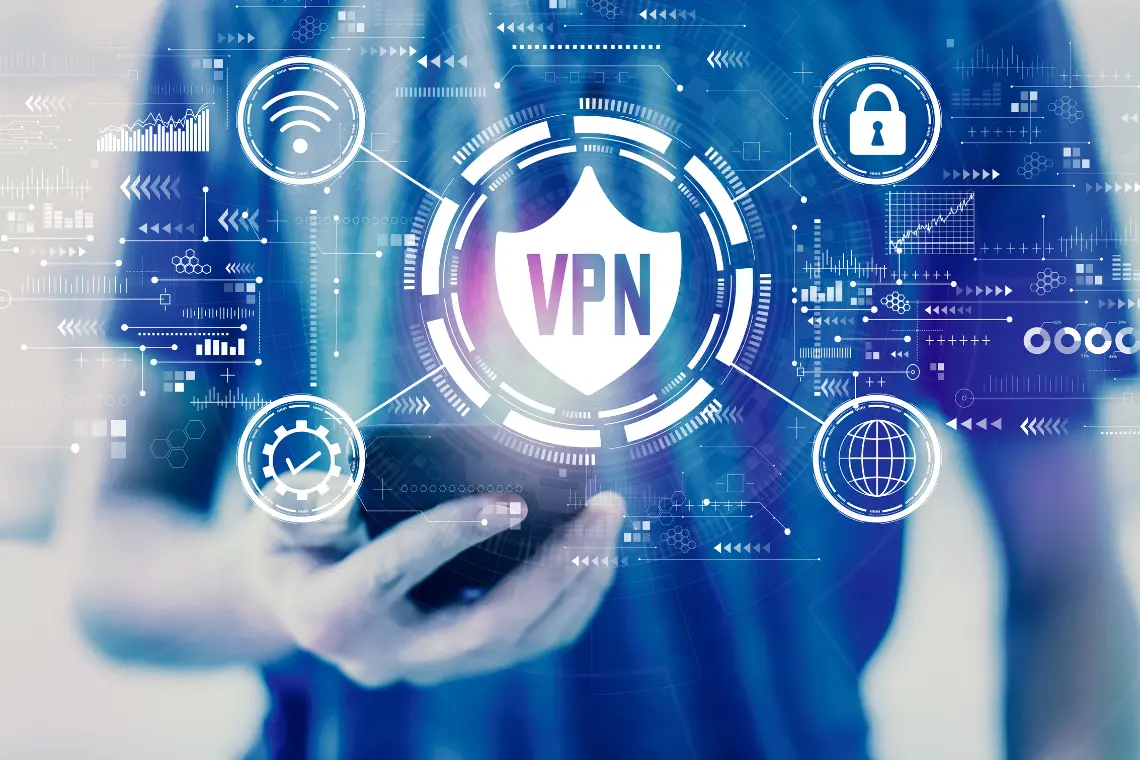Imagine that instead of working at a small office desk, you’re relaxing in a hammock between two palm trees while the soft murmur of the ocean waves plays in the background.
This dream-like scenario is the everyday reality of a digital nomad. This lifestyle allows you to work from any corner of the world, absorbing new cultures and experiences, all while getting your job done.
Sounds thrilling, right? But this adventurous life also comes with its own unique set of challenges.
Among them, cybersecurity is at the top. But worry not, brave adventurers!
This guide will give you valuable insights and resources to help you navigate the sometimes muddy seas of the digital world while keeping your personal information safe and secure.
Table of Contents
- Cybersecurity Risks for Digital Nomads
- Digital Nomad’s Cybersecurity Action Plan
- Safe Browsing Habits for Nomads
- VPNs: Shielding Your Data
- Strong Password Practices
- Enhancing Security: Two-Factor Authentication
- Navigating Malware and Phishing
- Safe Public Wi-Fi Usage
- Essential Device Security Tips
- Beyond Basics: Enhancing Cybersecurity
Understanding Cybersecurity Risks for Digital Nomads 

Before we go deeper into cybersecurity, let’s shortly discuss this. Like the physical, the digital world is fraught with potential dangers.
Cybersecurity threats aren’t selective—they target everyone from multinational corporations to individual internet users.
Here are some common digital pirates you may encounter on your journey:
- Phishing is a sneaky method where hackers pretend to be trustworthy sources. They hook you and trick you into sharing sensitive data. Think of it as a trap you can’t see, which will catch you as soon as you let your guard down.
- Malware: Imagine a secret intruder who sneaks into your system and causes chaos and destruction. That’s what malware does – it silently enters your digital domain, causing wide-ranging damage before you even realize it.
- Ransomware is a threat that acts like a kidnapper in the digital world. It’s malicious software that locks you out of your system and asks for a price to let you back in. Talk about a virtual bully!
- Identity Theft: Hackers work behind the scenes to get your personal information without you knowing. They then use this for nefarious purposes while pretending to be you.
As a digital nomad, the stakes can be even higher. Imagine you’re in a busy café in Rome, sipping a cappuccino and using the free Wi-Fi there.
Suddenly, without warning – WHAM! – your data is exposed to the prying eyes of cybercriminals. Isn’t it scary to think about?
But don’t worry about this! We will discuss in detail how to stay safe in the digital ocean and keep these threats at bay. So, let’s dive in and learn.
A Digital Nomad’s Action Plan: Battling Cybersecurity Threats

1. Essential Safe Browsing Habits: A Guide for Digital Nomads
Think of the internet as a bustling city. You wouldn’t walk down dark streets that look sketchy in real life, so why do it online? Safe browsing habits are the first step in your online security.
Always check the URLs of the sites you visit to make sure they are the ones you want to get to.
Stick to secure websites, those whose URLs start with ‘https’—the ‘s’ stands for secure and means that all communications between your browser and the website are encrypted.
And remember: just like you wouldn’t take candy from a stranger, you shouldn’t click on suspicious links, especially ones in emails or texts you didn’t ask for.
2. Shield Your Data: Importance of VPNs for Digital Nomads
A Virtual Private Network (VPN) is like having your bodyguard in a huge online city.
A VPN protects your data by wrapping it in a layer of encryption as it moves through the internet.
This makes it impossible for anyone who reads it to understand what it says. This is particularly crucial when connected to public Wi-Fi networks.
Consider opting for a reliable VPN service — like privacy-focused Hide.me or cost-effective AtlasVPN — that offers robust security features and has a reputation for protecting user privacy.
3. Password Practices: Your First Line of Defense in Cyberspace
Passwords are the keys to our digital kingdom. If they fall into the wrong hands, your kingdom (i.e., your personal data) is at risk.
That’s why having strong, unique passwords for each of your online accounts is critical.
Think of it as having different keys for different doors in your house. Regularly changing these keys boosts your home’s security.
Keeping track of a lot of complicated keys might seem like a hassle, but tools like NordPass and LastPass can help you do it without much trouble.
4. Doubling Down on Digital Security: The Role of Two-Factor Authentication
Even if a cybercriminal gets past your password, they will still have to get past another layer of security, like a unique code sent to your phone.
This extra step might seem like a hassle, but it greatly affects how safe you are online. Tools like Google Authenticator are great for setting up 2FA on your accounts.
5. Hidden Threats Unveiled: Navigating Malware and Phishing
Imagine receiving an email from your bank urging you to verify your details to prevent account closure.
In a panic, you click the link, enter your details, and you’ve just fallen into a phishing trap.
Phishing is a trick where hackers pose as legal businesses to get you to give them sensitive data.
Threats like these and malware are always changing and taking on new forms to trick you. Be careful about emails or texts you didn’t ask for, especially ones that want you to act right away.
To keep these threats away, make sure your antivirus software is always up to date.
Remember, regular system updates aren’t just about new features; they also contain security enhancements to help protect your system from new threats.

6. Public Wi-Fi and You: Safe Usage Tips for Digital Nomads
Public Wi-Fi networks can be a lifeline for digital nomads but also a hotbed for cyber criminals.
Most of the time, these networks are not secure, which means that other people could see the data you share or receive on the same network.
Ensure your VPN is always on when using a public network. This creates a safe tunnel for your data.
Avoid accessing sensitive data on these networks, and consider investing in a personal hotspot for a more secure connection.
7. Guarding Your Gateway: Essential Device Security Tips
We’ve discussed the importance of securing your digital space, but don’t forget about the physical security of your devices.
After all, your smartphones, laptops, and tablets—are your gateways to the digital world.
Don’t leave your devices unattended in public places; use a device tracking tool in case of an emergency.
Encrypt your data to prevent it from falling into the wrong hands. Regular back-ups can also save your life if you lose or have your gadget stolen.
8. Beyond the Basics: Enhancing Your Cybersecurity 
There is more to online safety than just these basics. Additional factors, such as safe online banking transactions and being up to date on the newest cybersecurity developments, can help to strengthen your defenses even further.
Remember to verify the authenticity of the website before making any online transactions.
Look out for the ‘https’ in the URL and the padlock symbol in the address bar—these are signs of a secure connection.
Using a credit card to buy things online can also protect you from scams better than using a debit card.
Cybersecurity is a race between those who seek to protect and those who seek to attack. To stay safe, you need to know about the latest risks and how to deal with them.
Follow trusted sources like the Cybersecurity & Infrastructure Security Agency (CISA) for updates, or subscribe to newsletters from reputable cybersecurity companies.
Conclusion 
Being a digital nomad is a thrilling journey in which the entire world is your oyster.
While the path might be lined with cybersecurity threats, remember, they’re not insurmountable obstacles.
You can confidently navigate the digital world with the right knowledge and tools in your backpack.
Remember these tips, stay vigilant, and embrace your journey with an open heart and a secure digital life.
Here’s to the great digital adventure that lies ahead! Safe travels!
Let’s share your experiences and advice in the comments below.
What are your best tips for staying safe online? Have you ever faced a cybersecurity threat while traveling?
Don’t forget to share this post on social media to help other digital nomads stay safe! Want more cybersecurity tips and digital nomad advice?
Sign up for our newsletter and get the latest information straight to your inbox!
Related Posts
Navigating the World Sustainably: A Guide for Digital Nomads
Join us as we explore the world of sustainable travel for digital nomads. From green practices to eco-friendly destinations, learn...
10 Essential Travel Tips for the Digital Nomad
Embark on your digital nomad journey with confidence. Explore our top 10 essential tips, designed to help you navigate the...
Embrace the Digital Horizon: Your Ultimate Guide to Work and Travel as a Digital Nomad 🌎💻
Navigate the digital nomad lifestyle with our ultimate guide. Unlock the possibilities of work and travel, and take your career...
Note: Some links on this page might be affiliate links. If you make a purchase through these links, I may earn a small commission at no extra cost to you. Thanks for your support!















